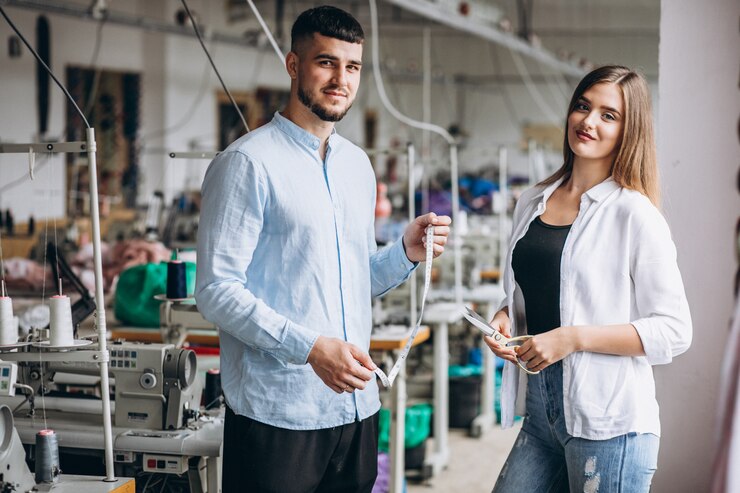In today’s world, where environmental awareness is at the forefront, the fashion industry is undergoing a significant transformation. Ethical clothing manufacturers are leading the charge, focusing on sustainable practices and responsible sourcing. This article explores the importance of ethical clothing manufacturers, the role of advanced printing techniques like 3D screen printing and flock screen print, and how Vouge Apparel exemplifies this shift in the industry.
The Importance of Ethical Clothing Manufacturers
Ethical clothing manufacturers prioritize sustainability and social responsibility in their operations. This approach encompasses various practices that aim to reduce environmental impact, promote fair labor practices, and create high-quality products that consumers can feel good about wearing.
- Environmental Responsibility: Traditional manufacturing processes often lead to significant waste and pollution. Ethical manufacturers adopt eco-friendly practices, such as using organic materials, minimizing water usage, and reducing carbon footprints. By choosing ethical clothing manufacturers, consumers can contribute to a healthier planet.
- Fair Labor Practices: Many ethical manufacturers ensure that workers are paid fair wages and work in safe conditions. This commitment to social responsibility fosters a positive work environment and supports local communities.
- Transparency: Ethical clothing manufacturers often provide transparency regarding their supply chains. This openness allows consumers to make informed decisions about the products they purchase, knowing that their clothing is produced responsibly.
Sustainable Fashion and Its Impact
Sustainable fashion goes beyond just the materials used; it encompasses the entire lifecycle of clothing, from design to disposal. Ethical clothing manufacturers play a crucial role in this movement by creating garments that are not only stylish but also sustainable.
The Role of 3D Screen Printing
One of the most innovative technologies in the realm of sustainable fashion is 3D screen printing. This method allows for intricate designs to be created with minimal waste. Here are some key benefits of 3D screen printing in ethical manufacturing:
- Reduced Waste: Traditional screen printing often results in excess ink and material waste. In contrast, 3D screen printing uses only the necessary materials, significantly reducing waste.
- Customization: 3D screen printing allows for greater customization, enabling manufacturers to create unique designs tailored to consumer preferences. This personalization reduces the need for overproduction, a common issue in the fashion industry.
- Efficiency: This technology streamlines the production process, allowing manufacturers to produce garments more quickly and efficiently. As a result, ethical clothing manufacturers can respond to market trends without compromising their commitment to sustainability.
Flock Screen Print: A Sustainable Alternative
Another innovative printing technique used by ethical clothing manufacturers is flock screen printing. This method involves applying a layer of fiber to a printed design, creating a soft, textured finish. Here’s why flock screen printing is a sustainable choice:
- Durability: Flock screen printing creates a durable finish that withstands wear and tear. This longevity means that garments last longer, reducing the frequency of replacements and contributing to a more sustainable fashion cycle.
- Reduced Chemical Use: Traditional printing methods often rely on harmful chemicals. Flock screen printing, on the other hand, typically uses water-based adhesives and dyes, minimizing the impact on the environment.
- Versatility: Flock screen printing can be applied to various fabrics and materials, making it a versatile choice for ethical clothing manufacturers. This adaptability allows for the creation of diverse product lines while maintaining sustainable practices.
Vouge Apparel: Leading the Charge in Sustainable Fashion
Vouge Apparel is an excellent example of a brand committed to ethical clothing manufacturing. Their focus on sustainability is evident in every aspect of their operations, from sourcing materials to the printing techniques they employ.
Commitment to Sustainable Materials
Vouge Apparel sources materials that are not only high-quality but also environmentally friendly. By using organic fabrics and recycled materials, they ensure that their clothing has a minimal ecological footprint. This commitment to sustainability resonates with consumers who prioritize eco-friendly products.
Innovative Printing Techniques
With a focus on modern technology, Vouge Apparel utilizes both 3D screen printing and flock screen printing to create unique, stylish garments. These advanced printing methods not only enhance the aesthetic appeal of their products but also align with their sustainable ethos.
- 3D Screen Printing: Vouge Apparel’s use of 3D screen printing demonstrates their commitment to innovation and sustainability. This technique allows them to create intricate designs while reducing waste and energy consumption.
- Flock Screen Print: The use of flock screen printing further exemplifies Vouge Apparel’s dedication to quality and sustainability. The textured finish adds a luxurious touch to their garments, appealing to consumers seeking both style and eco-consciousness.
Transparency and Ethical Practices
Vouge Apparel is committed to transparency in their supply chain, providing customers with insight into their manufacturing processes. By partnering with ethical clothing manufacturers, they ensure that workers are treated fairly and that environmental standards are upheld. This dedication to social responsibility is crucial in building consumer trust and loyalty.
Conclusion
The rise of ethical clothing manufacturers marks a significant shift in the fashion industry towards sustainability and social responsibility. With innovative printing techniques like 3D screen printing and flock screen print, these manufacturers are redefining what it means to produce fashion ethically. Vouge Apparel stands at the forefront of this movement, showcasing how commitment to sustainability can coexist with style and quality. As consumers become more aware of the impact of their choices, supporting ethical clothing manufacturers will play a pivotal role in shaping a more sustainable future for fashion.


